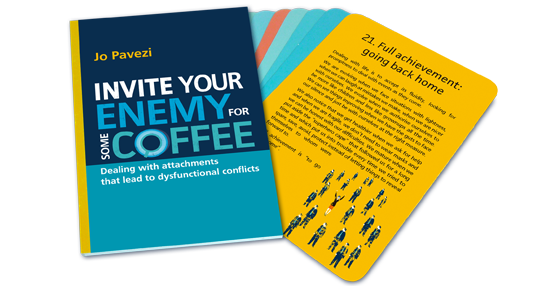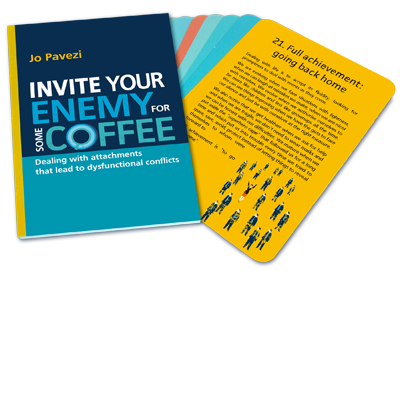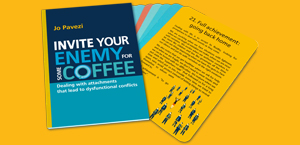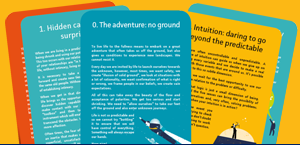7. Movement: the good direction
In conflict management, searching for solutions can be planned to configure the situation well. It’s an action that requires balance and awareness, and it needs to take three aspects into consideration: 1. people (who is involved, the feelings present, who can help, who should decide); 2. the problem (the reason, what is negociable, what is being asked, what can be granted); 3. the process (if there was an attempt of solution, how the parties communicate, what are the unsolvable interests).
It is important to remember that when a third party is invited to mediate a conflict, the person may, unconsciously, become the basis of the “triangle” and may end up being responsible to find the way out, sparing the others of getting involved and moving towards their own exit and decision.
Many times we get into conflicting situations due to a desire of helping those involved, and we end up shouldering all the weight.
People can learn to solve their problems. Let’s empower them to do so.







